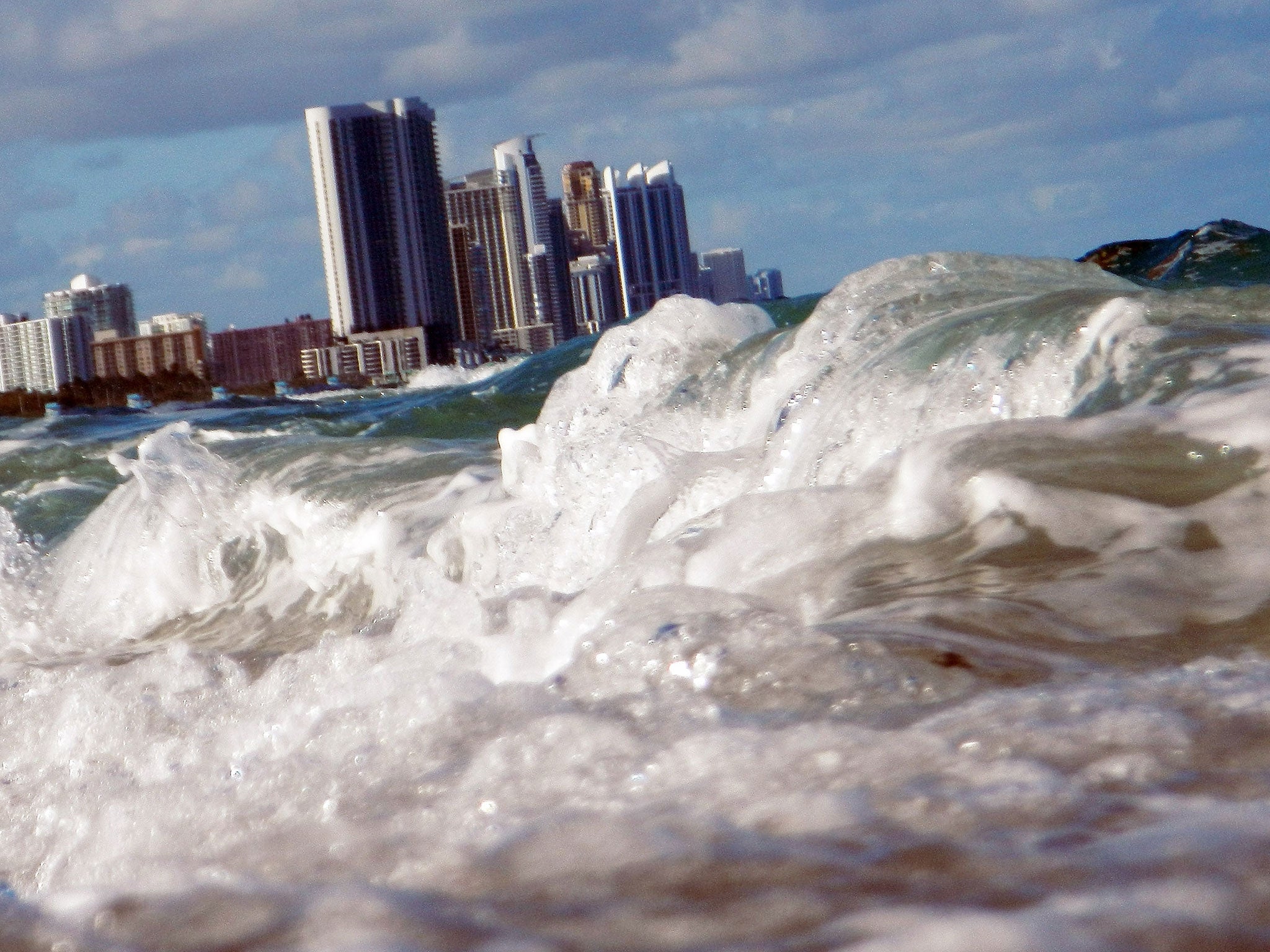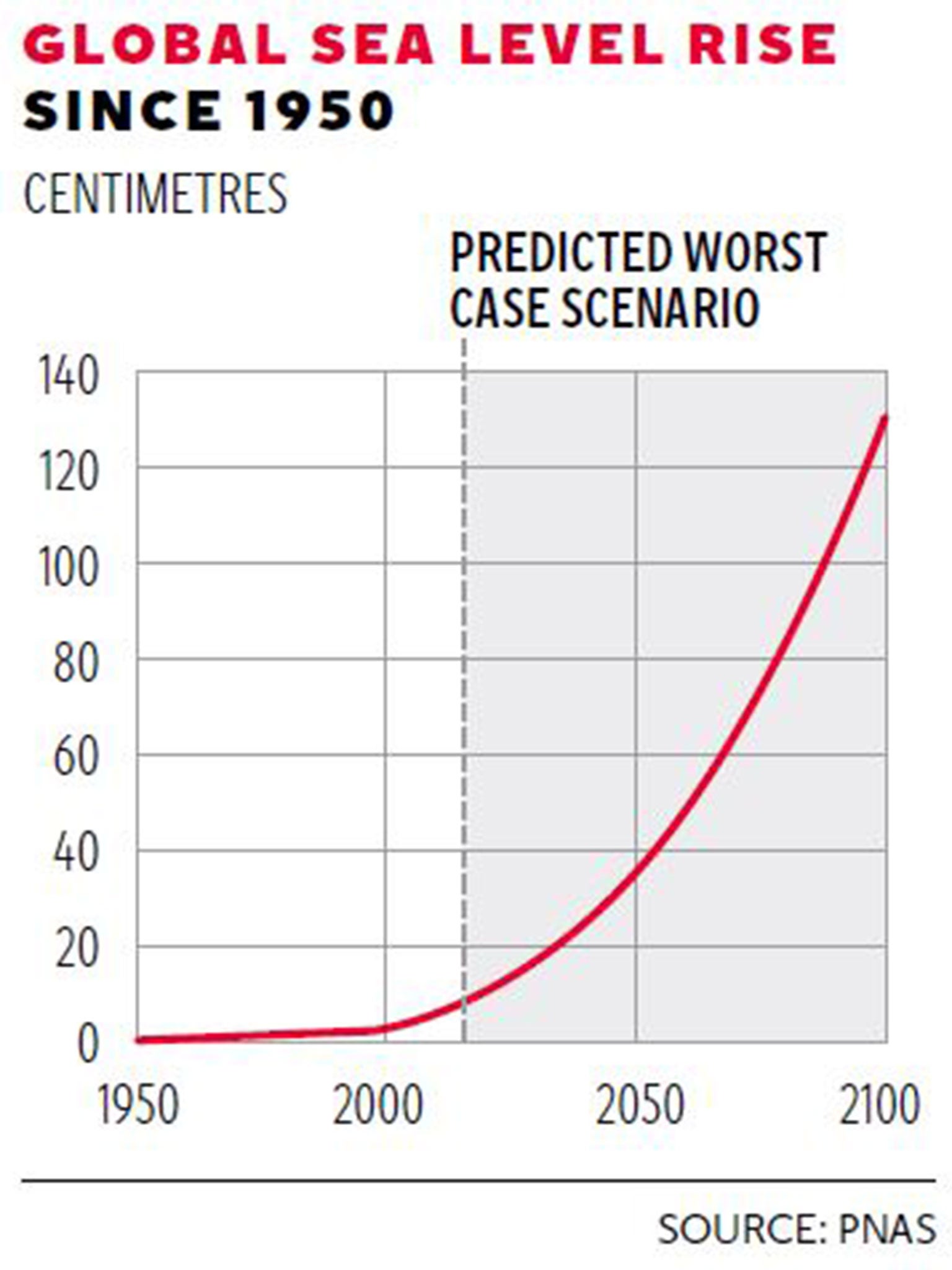Sea levels ‘could rise by more than a metre’ if global warming is not tackled, says new study
Researchers predict that global sea level will jump by between 20cm and 60cm by 2100

Your support helps us to tell the story
From reproductive rights to climate change to Big Tech, The Independent is on the ground when the story is developing. Whether it's investigating the financials of Elon Musk's pro-Trump PAC or producing our latest documentary, 'The A Word', which shines a light on the American women fighting for reproductive rights, we know how important it is to parse out the facts from the messaging.
At such a critical moment in US history, we need reporters on the ground. Your donation allows us to keep sending journalists to speak to both sides of the story.
The Independent is trusted by Americans across the entire political spectrum. And unlike many other quality news outlets, we choose not to lock Americans out of our reporting and analysis with paywalls. We believe quality journalism should be available to everyone, paid for by those who can afford it.
Your support makes all the difference.Sea levels could surge by well over a metre this century unless dramatic action is taken to tackle global warming, according to an alarming new study which reveals the oceans are rising at their fastest rate for at least 2,700 years.
Levels increased by 14cm last century, with climate change responsible for more than half of the rise, as warming temperatures expanded the sea water and melted glaciers, the research found.
The rapid rises in the water level have already brought dozens of low-lying islands dangerously close to the sea – but that is nothing compared with what lies in store this century, the researchers warn. They predict that, even in the unlikely event of dramatic overnight action to curb climate change, the global sea level will jump by between 20cm and 60cm by 2100.
And if extreme action is not taken quickly, this century could see an increase of between 50cm and 130cm, according to a report led by the Potsdam Institute for Climate Impact Research.
The surge in sea levels in the coming decades will continue a trend that began around 1950, when after centuries of minor fluctuations up and down, the level began to increase – and at a rapidly accelerating rate. “The 20th-century rise was extraordinary in the context of the last three millennia – and the rise over the last two decades has been even faster,” said Robert Kopp, an associate professor at Rutgers University, New Jersey, which has published a report on last century’s sea level rises alongside Potsdam’s predictions for the future.

The implications of rising sea levels are dramatic, threatening to make large swathes of low-lying coastal cities uninhabitable and spark an exodus of people to higher ground.
The increase has already caused misery for US citizens, according to a third report, also released on 23 February. Without global warming’s contribution to the rising sea level, more than half of the 8,000 “nuisance floods” which have inconvenienced the public in the US since 1950 would not have occurred, according to the Climate Central research group in the US.
The researchers say it is essential to cut emissions as quickly as possible to limit sea level rises. “With all the greenhouse gases we have already emitted, we cannot stop the seas from rising altogether, but we can substantially limit the rate of the rise by ending the use of fossil fuels,” said Anders Levermann, of the Potsdam Institute.
Between 1000 and 1400, the planet cooled by 0.2C and the water fell by about 8cm. Without the impact of global warming, the sea level change last century would have been somewhere between a 3cm drop and a 7cm increase, the research found.
Today’s studies did not look at the scale of migration that may result from rising sea levels. However, separate research this month predicted that sea level rises could eventually be sufficient to submerge the land housing 20 per cent of the world’s population, including the cities of London, New York, Kolkata and Shanghai.
The Potsdam and Rutgers studies are both published in the US journal Proceedings of the National Academy of Sciences.
Join our commenting forum
Join thought-provoking conversations, follow other Independent readers and see their replies
Comments